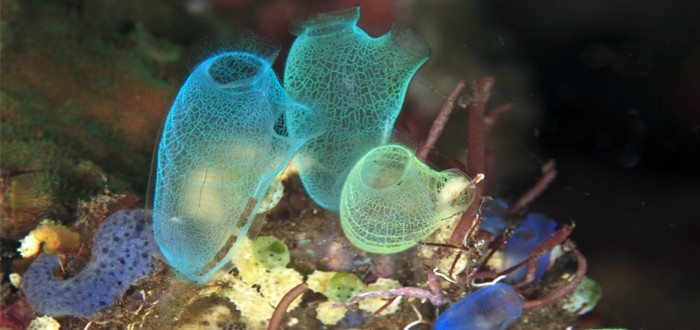The same South Pacific waters where many U.S. sailors and aviators died in combat during World War II are now yielding hope for a sarcomatoid mesothelioma drug that could help you live longer.
The mesothelioma drug is trabectedin. It comes from a coral-like creature that dwells at the bottom of the ocean.
A European pharmaceutical company has been harvesting the creature — called a sea squirt — and extracting from it a compound that disrupts the internal machinery of sarcomatoid mesothelioma cells.
If you’ve been diagnosed with the sarcomatoid form of mesothelioma, you’re already aware that sarcomatoid cells don’t respond well to treatment. That’s why sarcomatoid mesothelioma prognoses are usually so poor.
The good news here is that the researchers are getting encouraging results from tests they’ve been conducting with trabectedin in sarcomatoid mesothelioma patients.
The researchers shared their findings with colleagues at the annual meeting of the American Society of Clinical Oncology in Chicago. Speaking for the researchers was their lead investigator, Diego Luigo Cortinovis, M.D., of San Gerardo Hospital in Italy.
Sarcomatoid Mesothelioma Patients Studied
The trabectedin study was a phase 2 clinical trial involving 17 patients with sarcomatoid and/or biphasic malignant pleural mesothelioma. Trabectedin was given to them as a second-line treatment.
Before administering the drug, the researchers decided they would declare its use a success when a patient remained mesothelioma progression-free after 12 weeks of treatment.
The results showed that a solid 42 percent of the patients reached that 12-week finish line without the mesothelioma gaining any ground.
The participants were overwhelmingly male and elderly. All were in the later stages of mesothelioma. For seven of them, this was the first time they had received treatment for their mesothelioma.
Each participant on Day One was given a 1.3 mg/m2 dose of trabectedin by intravenous drip. The dose was repeated 21 days later.
It was repeated every 21 days after that until either the 12-week finish line was crossed or the mesothelioma once again started progressing, whichever occurred first.
Five of the patients did so well that the researchers continued them on trabectedin beyond the 12-week end-point. No word yet as to their status.
A big concern throughout the study was the possibility that participants might experience adverse side effects. A number of them in fact did. Most often seen was hepatic toxicity.
However, only two patients experienced adverse events rated at grade 3 or higher.
Mesothelioma Survival and Sea Squirts
Trabectedin is officially recognized as a novel, multimodal, synthetically produced antitumor agent.
The sea squirt from which it is extracted is the species Ecteinascidia turbinata. Like all sea squirts, this one is easily mistaken for coral.
And, like coral, sea squirts stay in the exact same spot on the ocean bottom. But sea squirts are not underwater plants. They’re actually vertebrate creatures.
You might be wondering how they find food if they don’t move around. The answer is they just sit there and wait for the food to come to them. As water passes through a sea squirt’s body, plankton and other nutrients are filtered out and deposited directly into the sea squirt’s digestive tract.
The biopharmaceutical company PharmaMar sends out divers to harvest the sea squirts and bring them to the surface for processing. The extract from the sea squirts is later turned into trabectedin.
PharmaMar, based in Madrid, Spain, specializes in marine-derived anticancer drugs. Trabectedin — brand name Yondelis — is commercially available in 81 countries.

